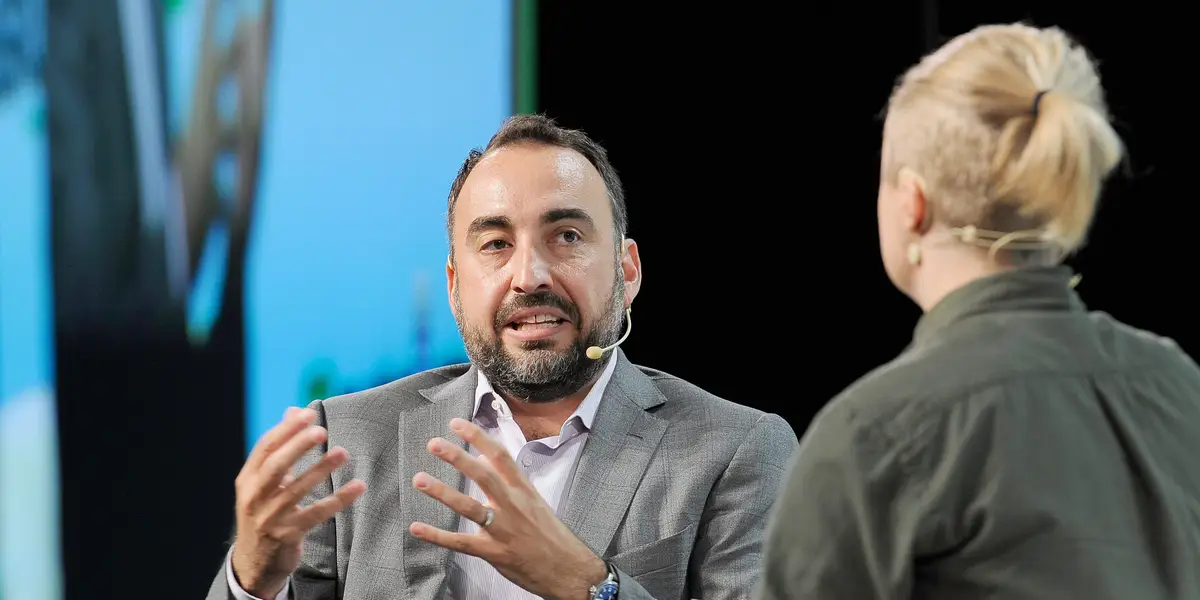
When it comes to his kids’ phones, former Facebook chief security officer Alex Stamos has a simple philosophy: “trust but verify.”
As schools institute cellphone bans and buy lockout pouches, parents continue to grapple with how much access their children should get to the internet. Stamos has had a particularly close-up view of its “horrible underside,” having worked in leading security positions at both Yahoo and Facebook.
Stamos outlined his eight phone rules for kids, seven of which he shared on the “Tosh Show” podcast and one that he recommended to us in a follow-up email.
The first question is just when your child should even have a phone. Stamos’ 13-year-old daughter has a phone, which he said there was “no way to prevent.”
“She got it at 13, that was her line,” he told podcast host and comedian Daniel Tosh. “Hold back on giving them a phone until they can handle it.”
In an email to Business Insider, Stamos wrote that “lots of kids have devices before 13,” and that it was “up to every parent.”
“iPads or other tablets can be locked down to only allow the apps you approve, and it’s important to not open up the web browser until they are older because then you have no control of what they get to,” he wrote.
Once they have a phone, Stamos said on the podcast that parents should watch their children’s technological habits closely. His two rules about monitoring were that parents should always have the password to a child’s phone and perform spot checks.
Related stories
Business Insider tells the innovative stories you want to know
Business Insider tells the innovative stories you want to know
“At any moment, you can tell your kids, ‘Give me your phone,'” he said. “If they ever refuse to give it to you, that’s it, it’s gone.”
Stamos said that the “threat” means the kids know they’ll have to share their phone contents. He tells his kids that it isn’t about what they do on the internet; it’s about what other “bad people” could do to them.
Americans have used various tricks to escape prolonged doom-scrolling. Some have even gone as far as purchasing “dumb phones” or investing in a corded landline.
Stamos’ solution is simpler: Kids should use the built-in screen time settings, and they should have to “dock” their phones at night. This night period was a great time to do spot checks, he said.
“Teenagers aren’t sleeping because they have their phones all night, and they text each other all night,” Stamos said.
Over email, Stamos wrote that late-night texting was “causing all kinds of social and educational problems.”
Concerned parents often point out that social media executives restrict their own kids’ usage. Meta CEO Mark Zuckerberg covers up his kids’ faces in social media posts, and said that he didn’t want them “sitting in front of a TV or a computer for a long period of time” in 2019. Google CEO Sundar Pichai said in 2018 that his then-11-year-old son didn’t have a phone.
Stamos is no exception; he said on the podcast that his rule is that kids shouldn’t have social media “until they’re ready.” When they are ready, he said their profiles should be set to private.
Host Daniel Tosh said that social media must be “on its way out,” to which Stamos agreed, pointing to the younger generations’ preferences.
“They’re much more into private communications with each other,” Stamos said. “I think that’s a really positive aspect, and that’s driven from the kids.”
Stamos’ final rule is to promote a culture of openness. He said some of the worst internet behavior occurs when bad actors convince children they can’t admit online mistakes to their parents.
“What predators know is that, if they can trick a kid into making a mistake, they can then create a situation in which it is you and me against your parents,” Stamos said. “They are very good at that. I’ve seen these transcripts.”
Stamos said that parents need to “vaccinate” their kids against that behavior, telling them, “If somebody tells you not to tell us something because we’ll be mad, they’re lying to you.”
“It’s important for kids to understand that you won’t hold them responsible for the actions of others, especially adults, and that any mistakes they make will be forgiven,” Stamos wrote in his email to Business Insider.
Stamos shared one final tip with us.
“For technical controls, Apple’s ‘communication safety’ is an important one to turn on as it blocks sending and receiving nude photos,” he wrote, adding that kids over 13 can “unfortunately” override the feature.



